With graduation season approaching, a new cohort of students is embarking on next steps, aiming to use their passions and skills to make a real, tangible impact on the world.
For many, this means — first and foremost — landing a job.
According to a survey by Inside Higher Ed, more than 60% of students are saying the rise of AI has affected their career plans. And in 2024, the World Economic Forum forecasted that global demand for AI and machine learning specialists will grow over the next several years by 40%.
As artificial intelligence advances at unparalleled speeds, it’s an exciting, opportune time to kickstart a career in the industry.
At the NVIDIA GTC global AI conference in March, panelists discussed how to kickstart a career in AI:
Read on for top tips from NVIDIA experts for students and recent grads looking to stand out in the AI job market.
1. Integrate Diverse Skills and Be Adaptable
Not everyone needs to have a computer science degree to work in AI.
A diverse educational and professional background can make people more adaptable and versatile — a valuable asset, especially in the rapidly evolving field of AI.
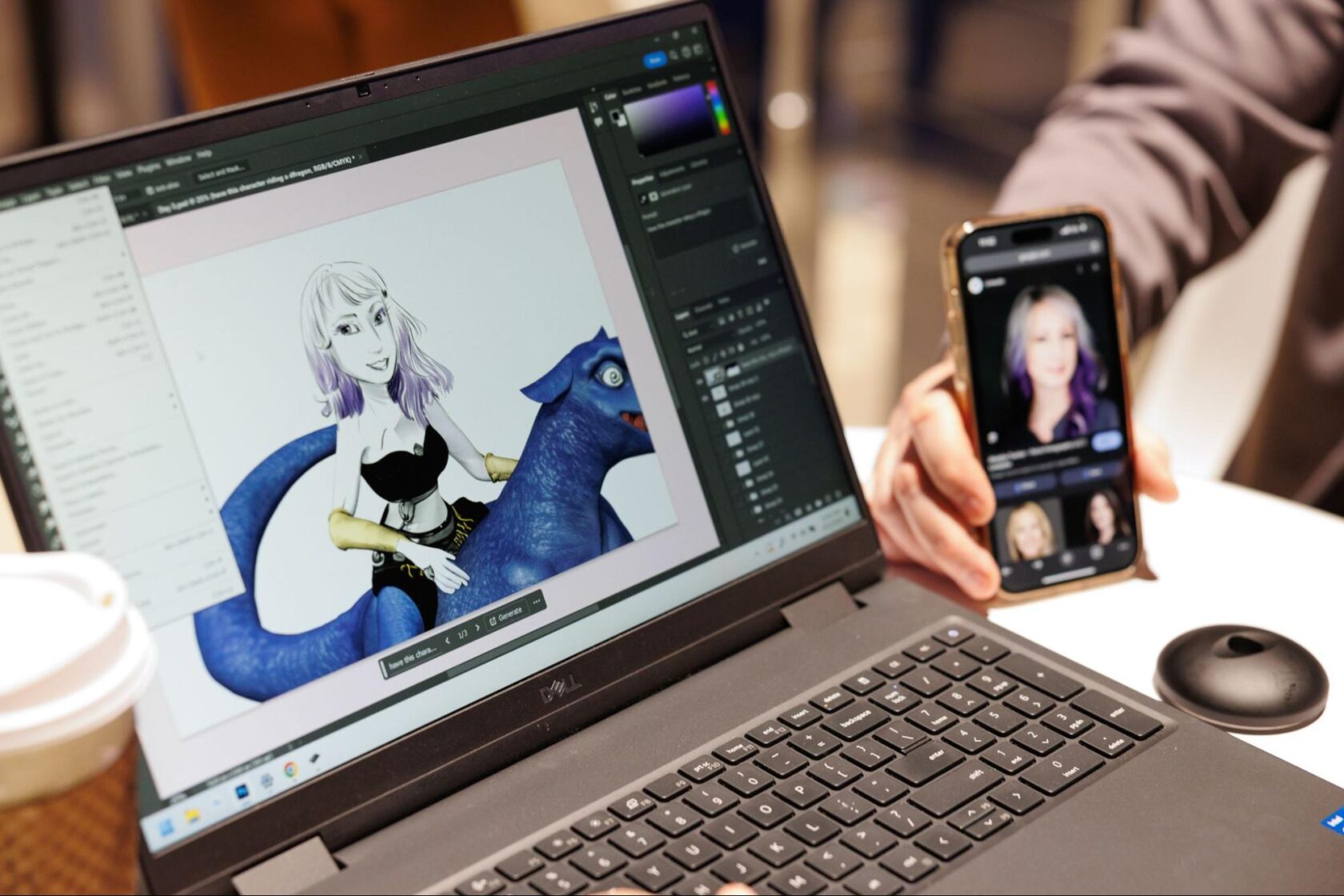
Whether a student has a studio art degree or a chemical engineering background, being an AI operator — knowing how to integrate AI into their workflows — can help them stand out from other candidates.
Sadie St. Lawerence, founder of Women in Data and CEO of the Human Machine Collaboration Institute, said during the GTC panel: “Don’t worry so much about necessarily the right skills — make sure you’re integrating the use of AI in your daily workflow.”
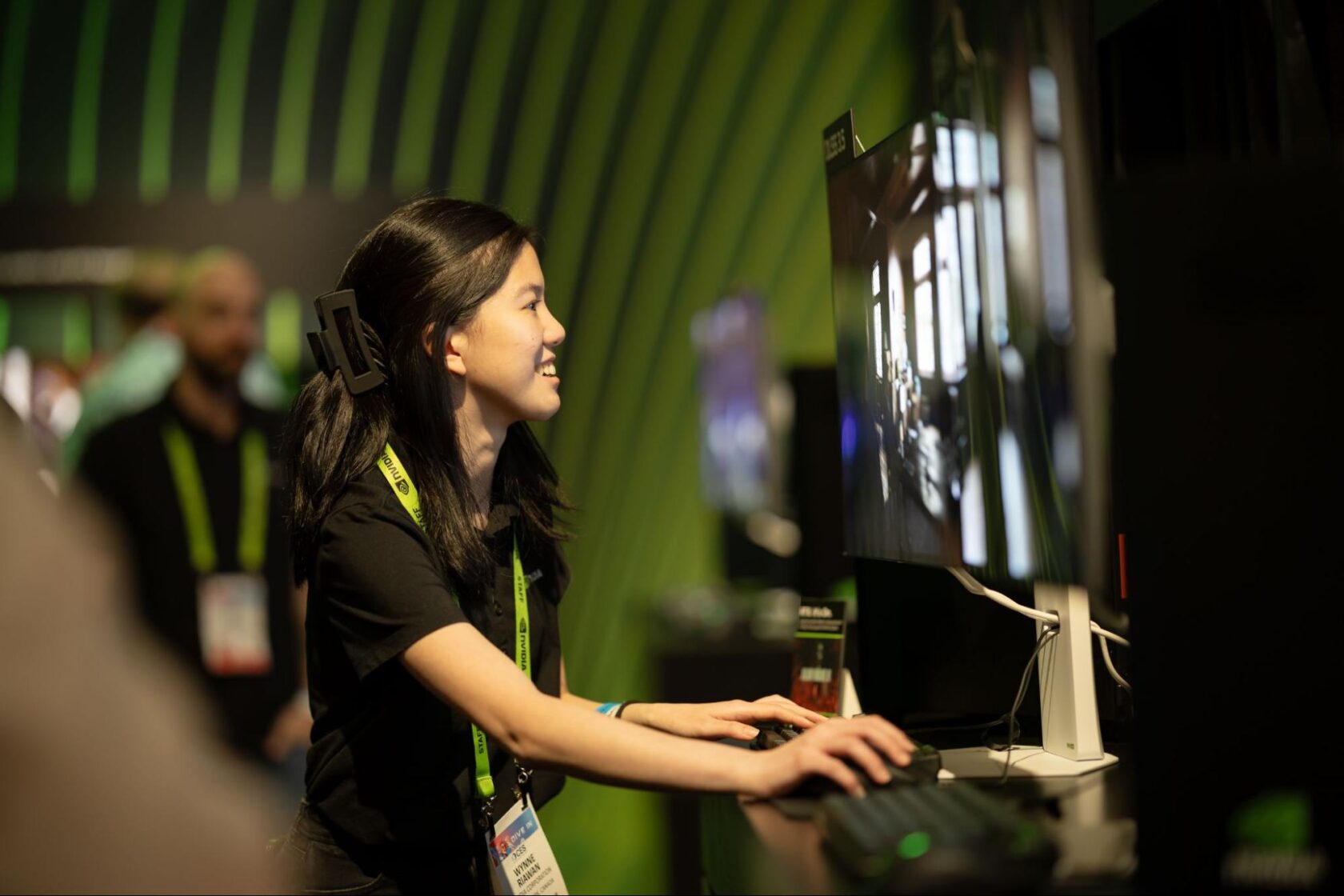
“AI allows you to branch outside your area of expertise,” added Carter Abdallah, senior developer technology engineer at NVIDIA. “AI can do some of the heavy lifting so nontechnical people can code, and technical people are now finding it valuable to lean into liberal arts education, so they can add human touches to their work in AI.”
Abdallah encouraged students to use AI as a tool to enhance and enable skills they might not have had access to before.
2. Find Your ‘Why’ and Align Passions
Eric Vargas, senior university recruiting manager at NVIDIA, said, “There isn’t necessarily such a thing as an ‘AI candidate,’ but there are sub-areas within AI, different domains and industries that are going to be affected by AI, which you’ll want to gain experience in, because that’s where companies are looking to implement AI.”
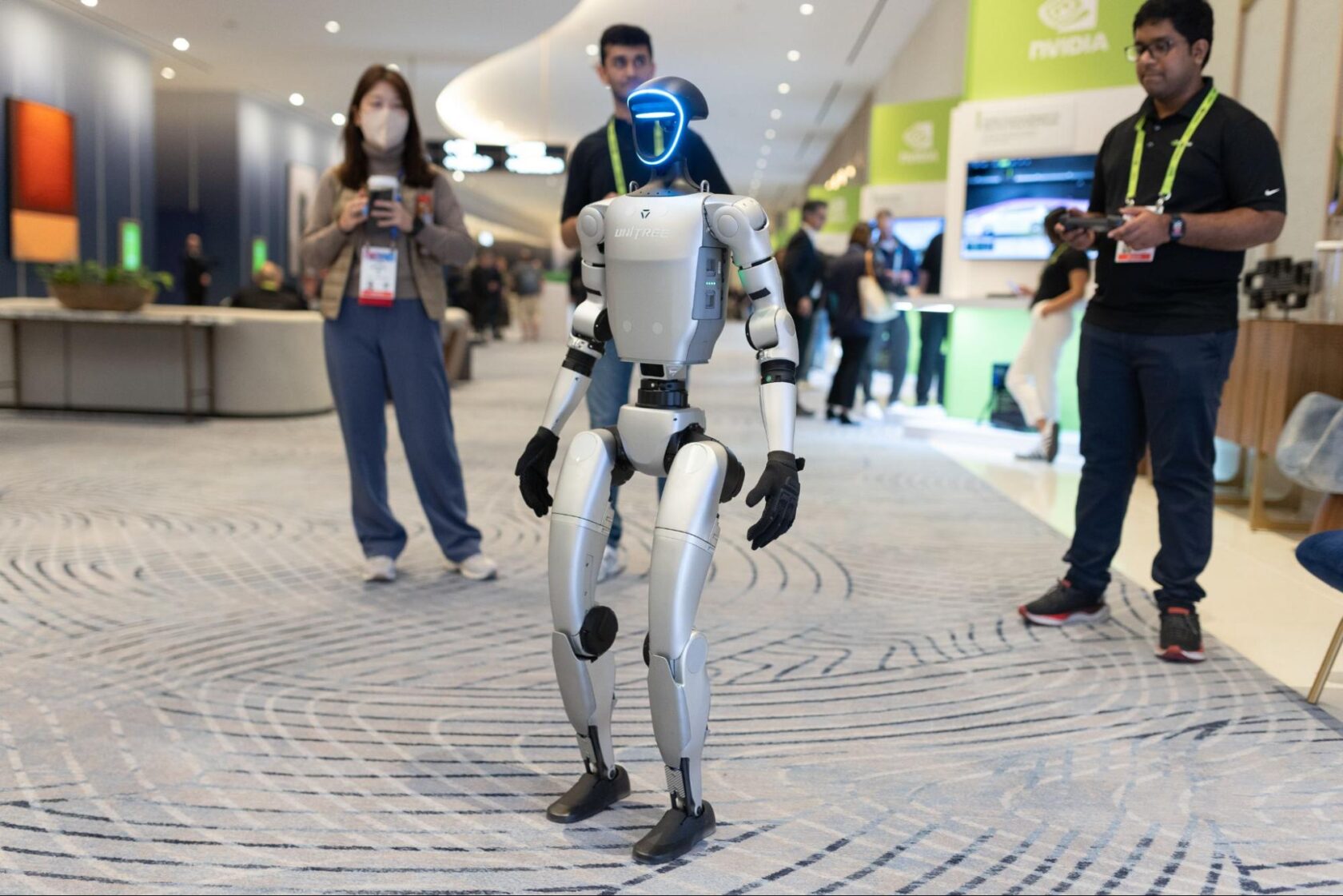
Autonomous vehicles, robotics, gaming and healthcare are just some of the slew of areas in which AI can be applied. Students should find the industry that most aligns with their passions and gain expertise in that field.
“Pick a problem that seems impossible to solve but that you’re passionate about,” added Saudia Jones, generative AI analyst at NVIDIA and a recent graduate from San Jose State University. “Connect with ‘why’ you’re driven by this, because that’s going to be the thing that leads you to overcome the challenges and innovate.”
Learn more about how land an internship at NVIDIA:
3. Use AI Responsibly
Use AI tools responsibly and maintain a human touch, Vargas advised, including when writing job applications, cover letters and responding to questions for a technical interview. This balance is crucial for building trust and ensuring ethical use of technology.
Trustworthy AI — an approach to AI development that prioritizes safety and transparency for the people who interact with it — is key to the industry.
For example, learn more about how David Martin, a technical project manager intern on the trustworthy AI team at NVIDIA, is channeling the power of artificial intelligence for social good.
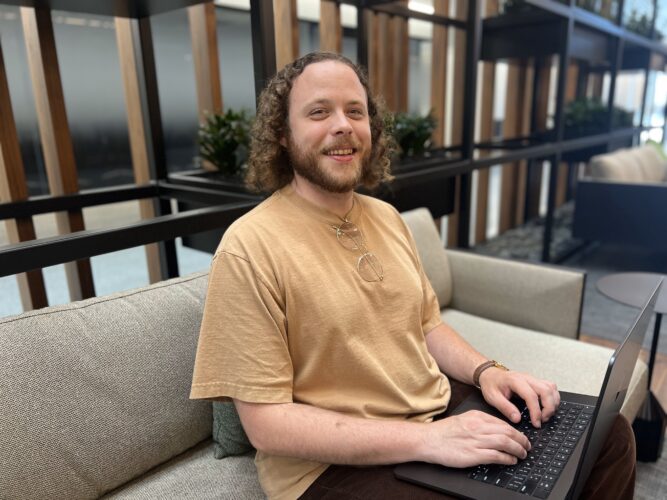
Growing up deaf, Martin experienced the limitations of existing technologies, such as the accuracy of closed captioning on streaming platforms. At NVIDIA, his responsibilities include advising engineering teams that are working on sign language AI applications and supporting the development of ethical dataset curation tools.
This combination of showcasing one’s passion and using AI for good is key to standing out in the field.
4. Build a Network and Seek Mentorship
Networking and mentorship are essential for career growth in any industry.
“Building a network and seeking mentorship in the AI space has been crucial for my career growth,” St. Lawerence said. “I’ve learned so much from connecting with experienced professionals.”
Students can easily connect with industry professionals on platforms like LinkedIn, she said, which uses AI to help people during job searches by recommending key words to put on resumes for specific positions and identifying transferable skills that could apply to a role.
In addition, anyone can connect with experts and take training courses through the NVIDIA Deep Learning Institute, which offers in-demand skill development, hands-on experience and expert knowledge in AI, data science, accelerated computing and more.
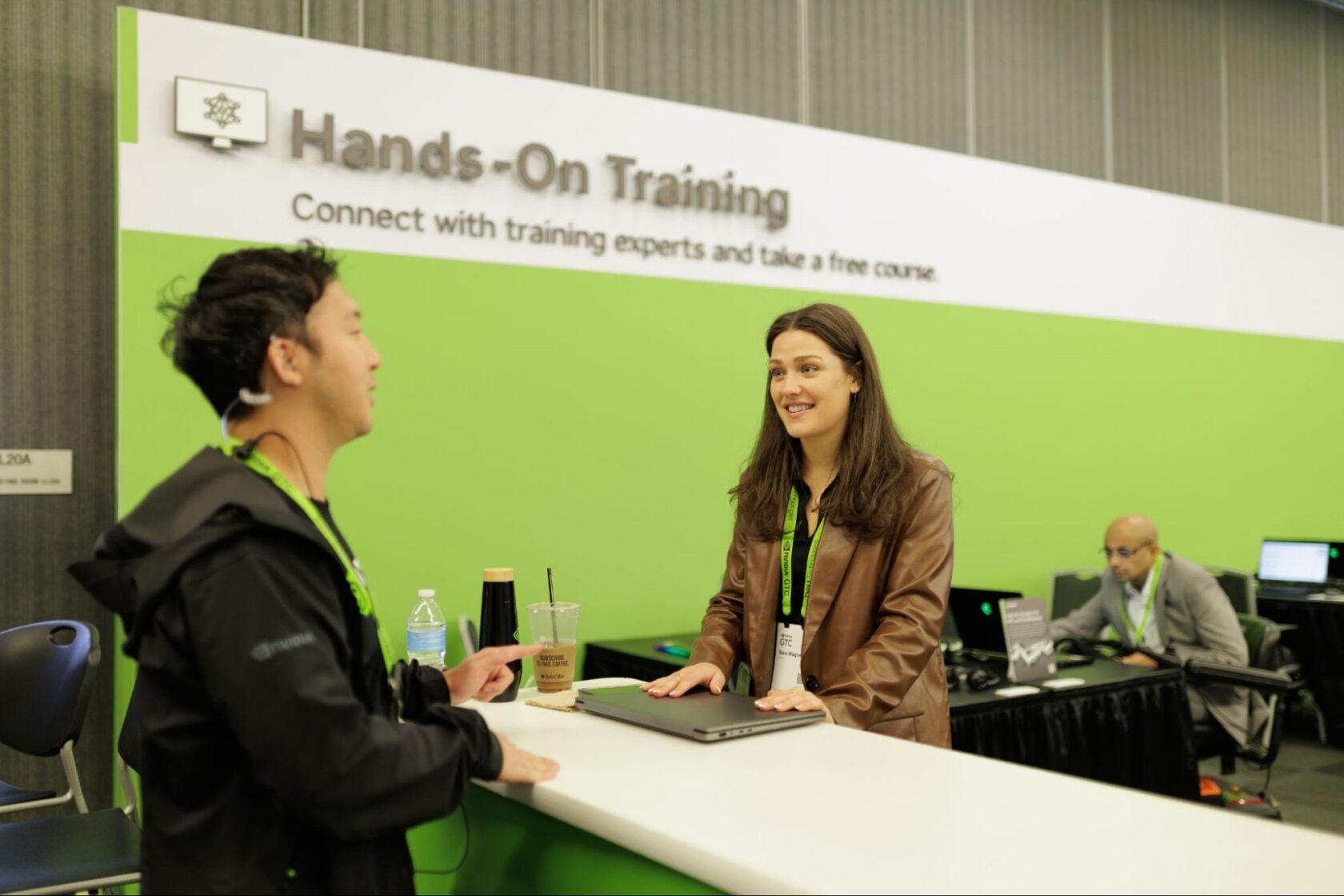 5. Stand Out by Being Proactive
5. Stand Out by Being Proactive
Let’s say a candidate has done all of the above — how can they set themselves apart from other applicants?
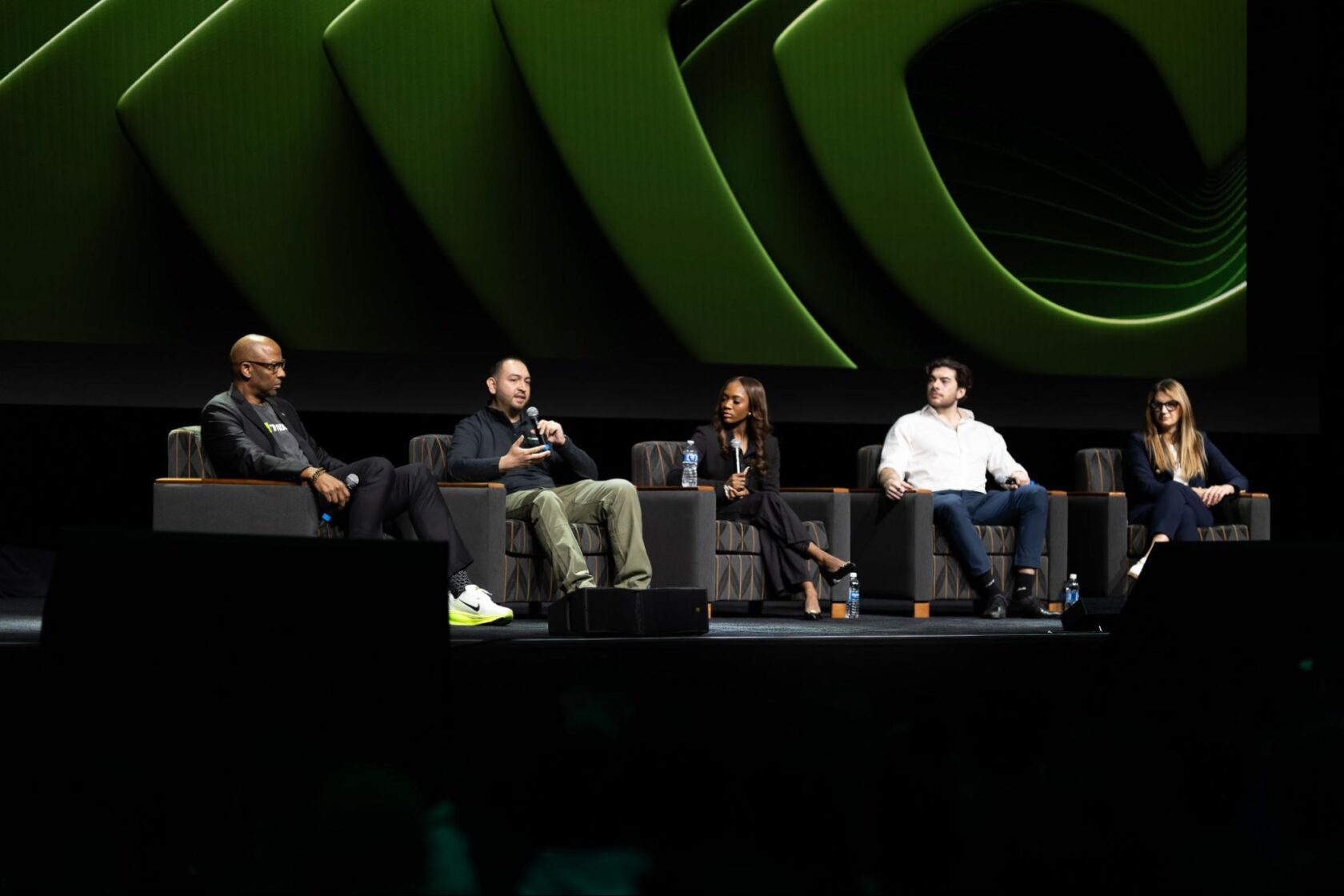
Carter said, “Identify a problem you can solve and take proactive steps to address it, even before being hired.”
Vargas agreed and said the top three things recruiters at NVIDIA look for are: 1) a demonstration of the technical skills required for the role, 2) subject-matter expertise and 3) projects that exhibit thinking outside of the box.
A student could stand out from other candidates by, for example, demonstrating a self-started robotics solution built with an NVIDIA Jetson developer kit, writing a technical article that gets many views across social media or starting an AI-related club on campus.
More Resources
A panel of pioneering AI researchers also discussed their career paths at GTC:
They highlighted that in research, too, practical experience, a demonstration of persistence and resilience, and an interdisciplinary approach to problem-solving are what give candidates an edge.
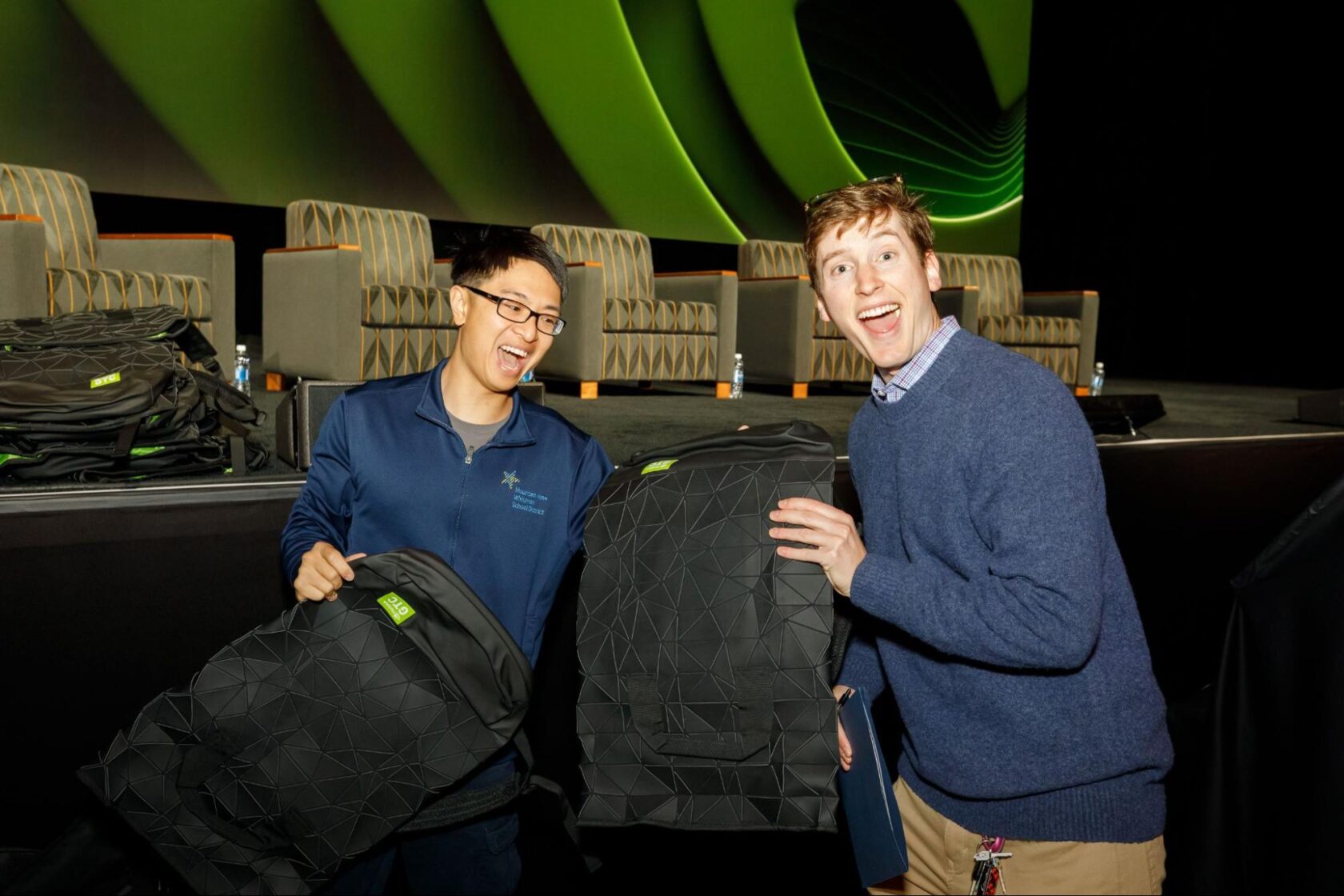
And for those already on their way with their AI job search, some interview tips and tricks from NVIDIA’s University Recruiting team include:
- Before: Read through the job description and practice applying the required technical skills. Be prepared to articulate relevant experiences clearly and concisely. Make a list of five or more questions about the position, project and team.
- During: Respond thoughtfully and enthusiastically to the interviewer’s questions. For technical interviews, talk through any thought processes at each step of the problem. Listen carefully to how the interviewer responds — they’ll often give clues when a candidate is on track or drop subtle hints if they’re straying from the solution.
- After: Within 24 hours of the interview, send a thank-you note to the recruiter for the role — they’ll forward it to the interviewer. After 10 business days, candidates waiting for next steps can follow up with the recruiter to inquire about their status.
Explore NVIDIA GTC session playlists for students, as well as researchers and educators.